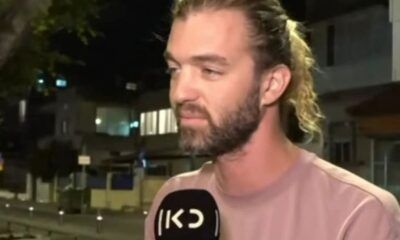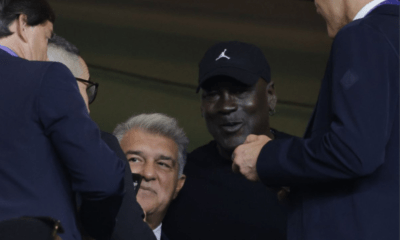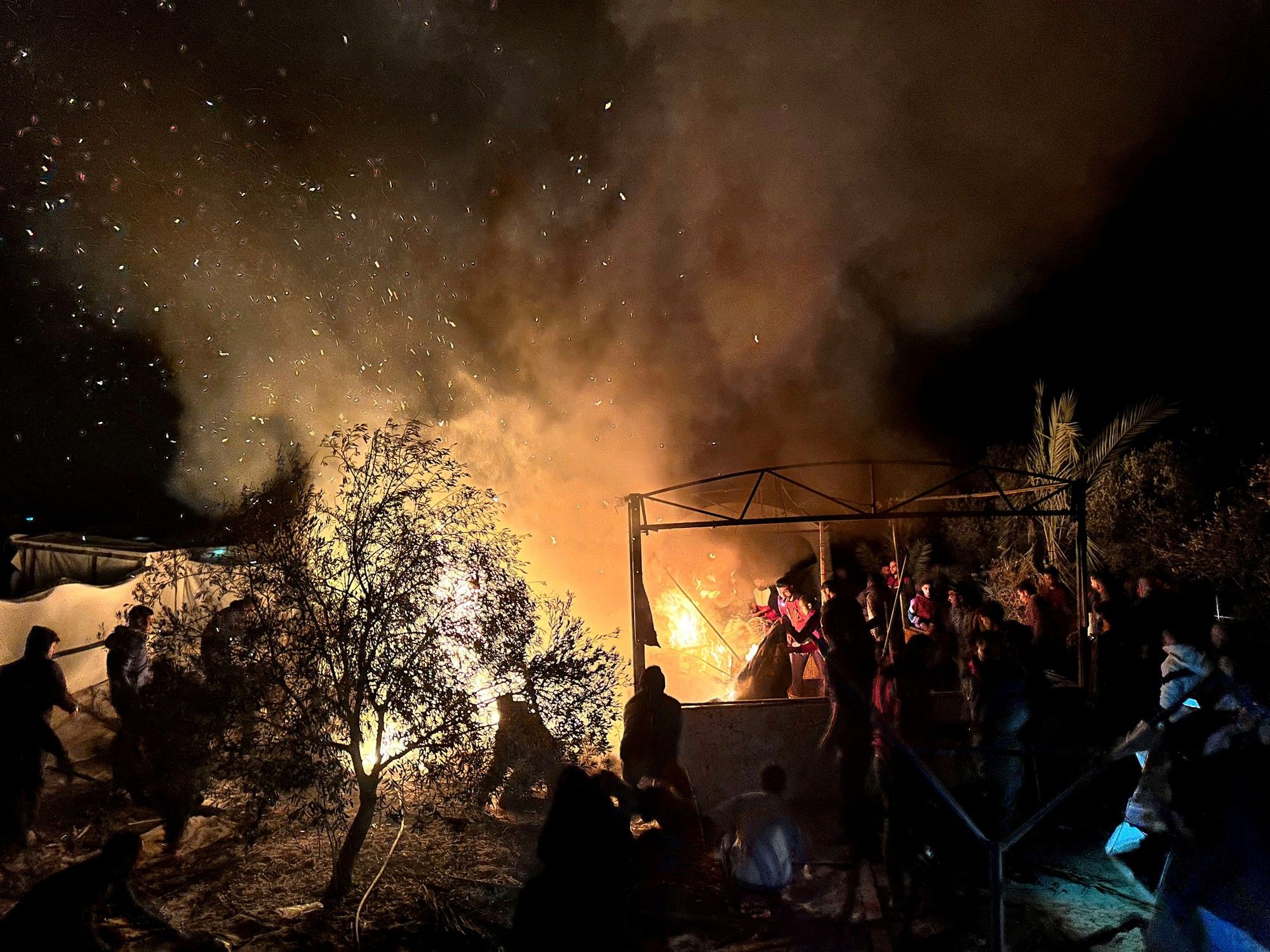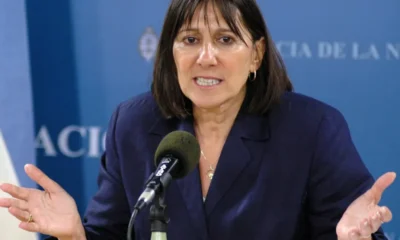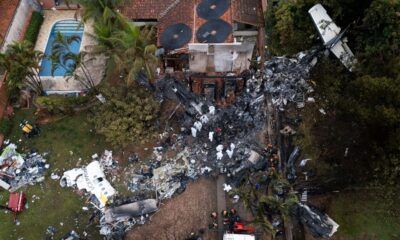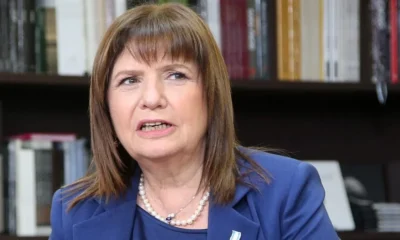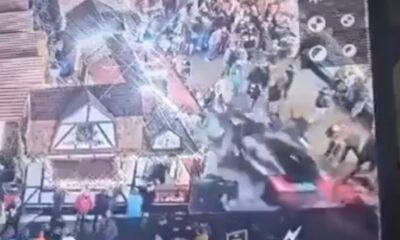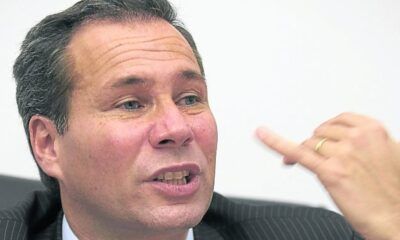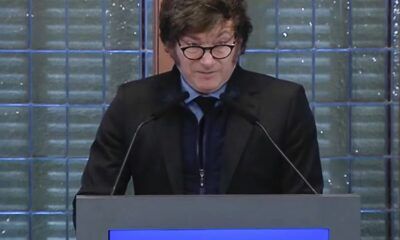INTERNACIONAL
Sami Michael, Iraqi-born and award-winning Israeli author and activist, dies at 97

JERUSALEM (AP) — Sami Michael, an award-winning Iraqi-Israeli author who was known for writing poignantly about oppressed minorities and the challenges faced by Jews from Arab countries, died on Monday. He was 97.
His characters, who were often Arabic-speaking Jews like himself, opened a window into the particular pains and challenges faced by Mizrahi Jews from the Middle East and North Africa, as well as his close relationships with Israeli Palestinians in the mixed city of Haifa.
WHAT I SAW IN ISRAEL WAS INSPIRING, DESPITE THE HORRORSCAPE LEFT BY HAMAS
«His characters bridged the divide between Jews and Arabs,» said Itamar Drori, a senior lecturer in literature at Israel’s Bar Ilan University.
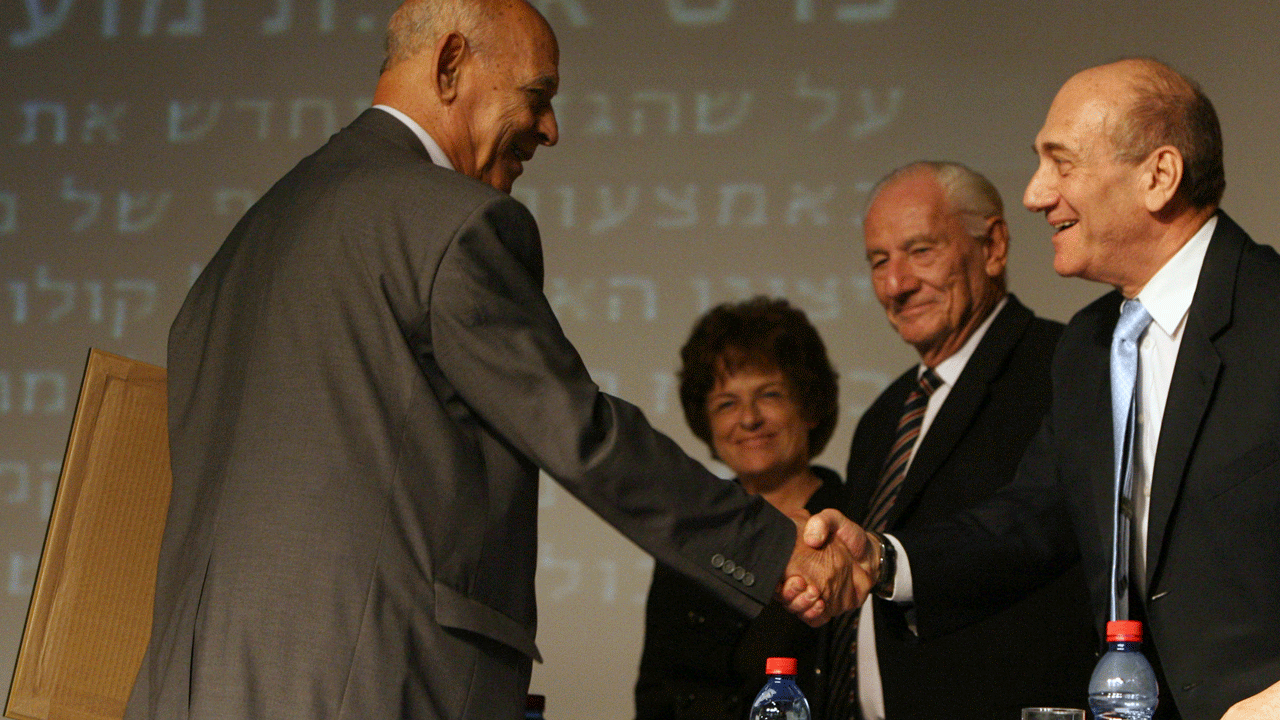
Iraqi-born Israeli author Sami Michael, left, is congratulated by Israeli Prime Minister Ehud Olmert, right, as he receives an Emet Prize in Jerusalem Wednesday, Nov. 7, 2007. Sami Michael, an award-winning Iraqi-Israeli author who was known for writing poignantly about oppressed minorities and the challenges faced by Jews from Arab countries, has died. He was 97. (AP Photo / Jim Hollander, Pool)
Because Michael was a native Arabic speaker who grew up immersed in Baghdad’s rich cultural scene, Michael often felt closer to Arab culture in Israel, especially because Israel’s European-influenced Jewish leadership discriminated against Mizrahi Jews, Drori said.
Michael was also critical of Israel’s treatment of Palestinians and advocated for oppressed minorities.
He served as the president of the Association for Civil Rights in Israel for more than two decades until last September. «He expressed his pain and rage toward the injustices in Israel, demanded where justice must be served and instilled in us a spirit of hope for change,» the organization said in a statement announcing Michael’s death.
Michael was born in a wealthy mixed neighborhood of Baghdad in 1926 and was active in the Communist Party as a young man.
An arrest warrant from Iraqi authorities forced him to flee to Iran in 1948 and then to Israel in 1949, where he worked as a journalist for the party’s Arabic-language newspaper in the northern city of Haifa. In 1955, disgruntled with some of the Communist Party’s ideology, he left the paper and the party and went to work as a hydrologist with the Israel Hydrologic Authority.
After a writing hiatus of nearly 20 years, Michael published his first novel in Hebrew in 1974, «All Men are Equal — But Some are More,» recounting the struggles of Mizrahi Jews as they adjusted to life in Israel. In the years after Israeli independence in 1948, newly arrived Mizrahi Jews were forced to live in shantytown transit camps and faced significant discrimination by the country’s European leaders.
He wrote more than 20 novels and children’s books, in addition to plays, essays and cultural criticism. Some of his books were also adapted into movies. He won the Hans Christian Andersen Award for children’s literature as well as many of Israel’s top literary prizes, including twice capturing the prime minister’s prize for Hebrew literature.
The main role of culture is to «shine a bright light over ignorance, injustice and corruption,» Michael told Israel’s Haaretz newspaper in 2018. He added that he felt called to take action against Israeli policies that push the country «into an abyss,» recalling when writers and poets remained silent in Iraq against unjust government dictates in his youth.
CLICK HERE TO GET THE FOX NEWS APP
«Signing petitions was not enough, because without real action on the part of intellectuals and consumers of culture, the whole of society will pay a heavy price,» he said.
Later Monday, President Isaac Herzog eulogized Michael as «a giant among giants» who «made our bookshelf rich and spectacular.»
Michael is survived by his two children from his first marriage, and his second wife, journalist Rachel Yona Michael, according to Haaretz.
INTERNACIONAL
El grupo terrorista Hamas dio pruebas de vida de rehenes a Israel
-
POLITICA3 días ago
El descargo de Longobardi tras su salida de Radio Rivadavia: «Me hizo acordar cuando Cristina ejecutó mi despido en Radio 10»
-
INTERNACIONAL2 días ago
Atropello múltiple en un mercado de Navidad en Alemania: al menos dos muertos y más de 60 heridos
-
POLITICA2 días ago
Guillermo Castello: «Kicillof está utilizando la caja de la provincia para posicionarse políticamente»
-
POLITICA1 día ago
Nisman: el Gobierno acepta el pedido del fiscal y levanta el secreto sobre los espías inorgánicos de la SIDE y el Ejército
-
CHIMENTOS2 días ago
Se confirmó el escandaloso motivo de la crisis entre Javier Milei y Yuyito González: «Él estaba cerca de Graciela Alfano»
-
POLITICA13 horas ago
El Gobierno reveló los pasos para salir del cepo cambiario y alcanzar la “flotación limpia”: cuáles son









